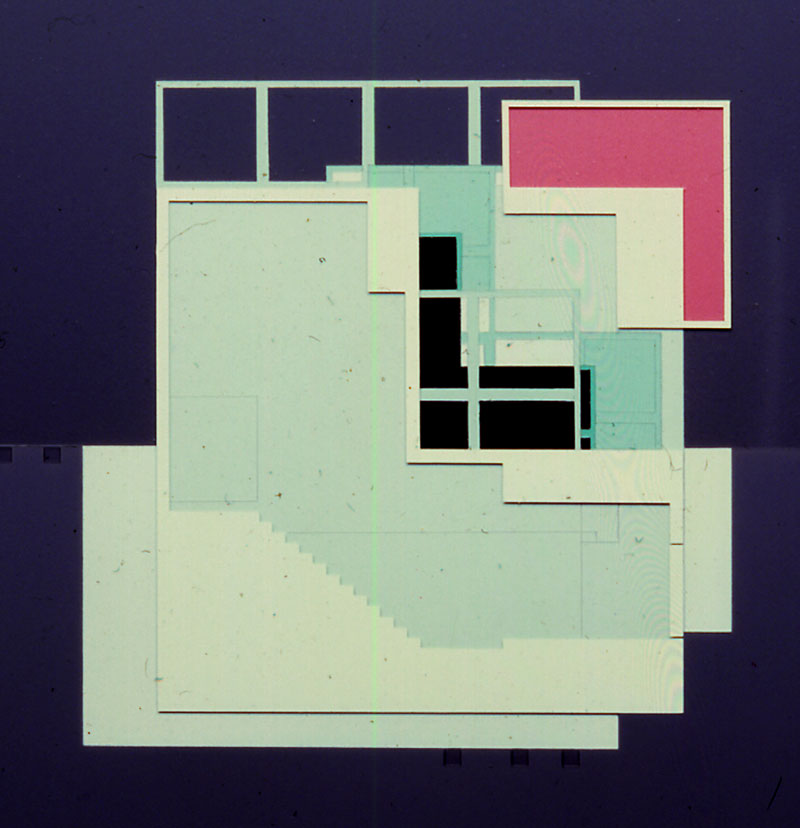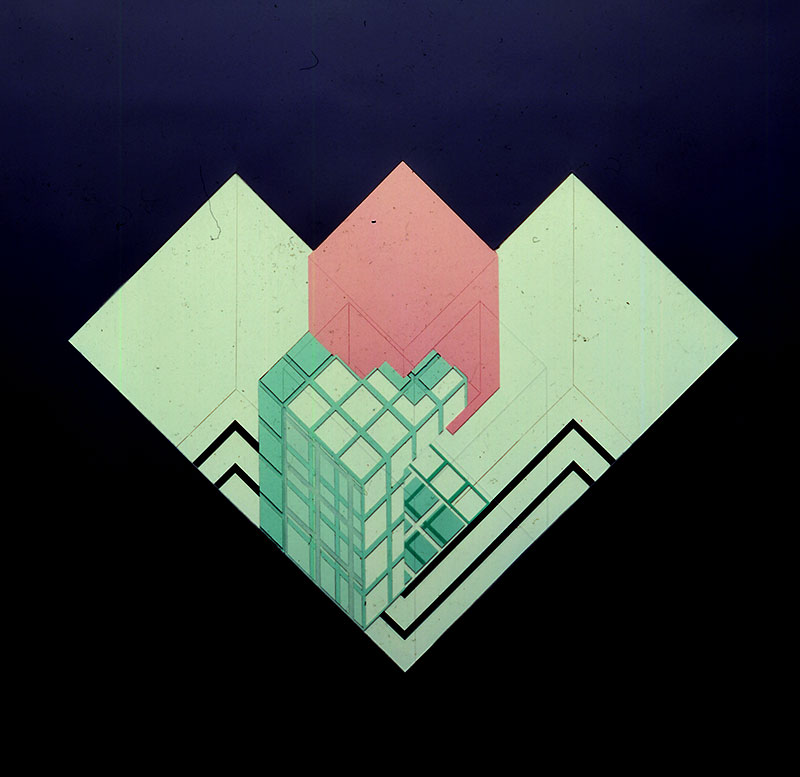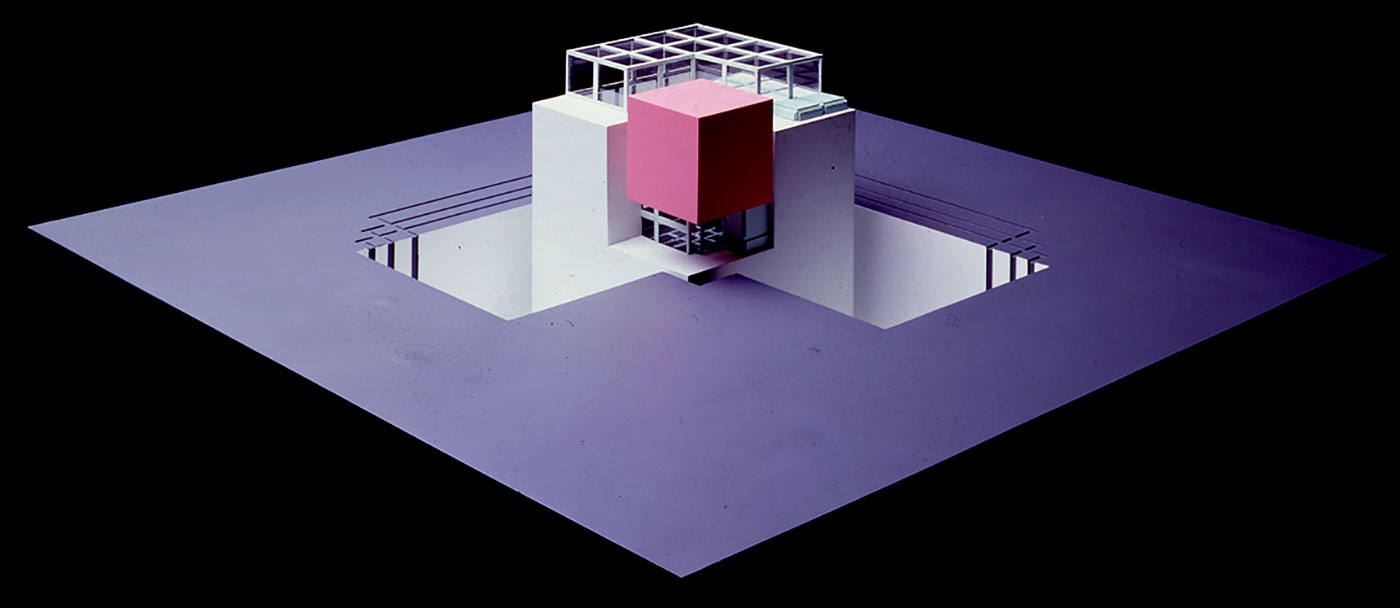
FIN d'OU T HOU S
Year: 1983
The
first premise of the Fin d’Ou T Hou S is that the world can no longer be
understood in relation to any “absolute” frame of reference defined by man. If
one accepts this presupposition, then the concept of extrinsic or relative
value becomes meaningless, and the traditional rationalism merely arbitrary.
Fin d’Ou T Hou S suggests that the architectural object must become internalized
so that its value lies in its own processes. Those programmatic requirements
that had previously been seen as the causes must now become the effects of
architecture. This “folly,” unlike most of modern architecture, is neither rational
architecture in the traditional sense nor the traditional arbitrary folly. It
proposes an intrinsic value system as an alternative to a context of
arbitrariness; it is true to its own logic. Faced with an object that admits no
discursive element external to its own processes, our customary role as subject
is futile, and we are bereft of our habitual modes of understanding and
appraising architecture. Fin d’Ou T Hou S requires a new reader, one willing to
suspend previous modes of deciphering in favor of an attitude of receptive
investigation.
While Fin d’Ou T Hou S claims to be self-definitive, it does not claim to be self-explanatory. This process records its own history at every point in its development, but no one step, including the last, is any more than an artificial representation of a single frame from seamless continuity, which would be self-explanatory if it could be recreated. Traditionally, the need for a score or text devalued the architectural project. Fin d’Ou T Hou S is presented as a score of its process; text is provided in the form of a presentation and critique of decomposition as architectural process, and an explanation of the analysis and processes discovered in the initial configuration. The “house” itself is proposed as an approximation of decomposition, not an example of it.
While Fin d’Ou T Hou S claims to be self-definitive, it does not claim to be self-explanatory. This process records its own history at every point in its development, but no one step, including the last, is any more than an artificial representation of a single frame from seamless continuity, which would be self-explanatory if it could be recreated. Traditionally, the need for a score or text devalued the architectural project. Fin d’Ou T Hou S is presented as a score of its process; text is provided in the form of a presentation and critique of decomposition as architectural process, and an explanation of the analysis and processes discovered in the initial configuration. The “house” itself is proposed as an approximation of decomposition, not an example of it.
Concept

Drawings






Model photos





